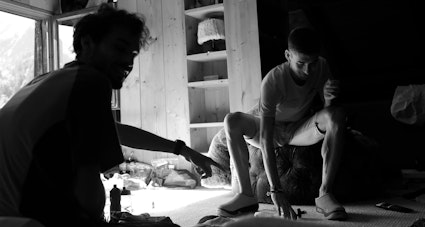
Anthony Pontier and Melvyn Bracon — go the distance.
In the age of social media, we see everything. We see the shiny lifestyles of pro athletes — always on the trails, always the newest kit, always training — and it’s hard not to compare. It can make racing feel out of reach. But the reality is that the gap isn’t always so vast. Anthony Pontier (Account Manager) and Melvyn Bracon (Engineer), both runners with Distance Athletics, describe their approach to balancing the demands of preparing for UTMB alongside the unpredictable nature of full-time employment. In some ways, they are the runners that most of us are.
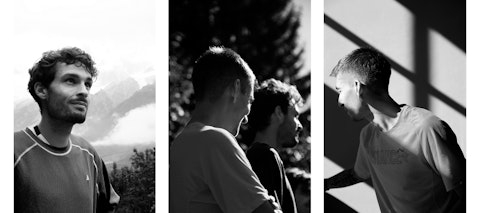
In 2024, Vincent Bouillard won UTMB. He wasn’t a professional trail runner. His name did not appear on the list of pre-race favorites. And his win resonated. His full-time job and commitments outside running were relatable. So was his personality — an unassuming individual. A purist of the sport. No spotlight. No validation from social media required. Vincent created a trickle-down of mindset that made UTMB feel closer, attainable. The everyday athlete getting one over on the pros, it felt like. But not without effort — and balance.
Trail running is getting more professional and faster, so it’s refreshing to see that some people are capable of demonstrating elite performances from relatively ordinary circumstances. Anthony finds it reassuring. “This shows me that mental stability and passion are just as important as training. Sometimes when I look at professional runners, I envy them and their flexible schedule, but I remain convinced that this isn't for everyone. Personally, I need to be constantly busy but in a different way (not just training). I see a bit of myself in him.”
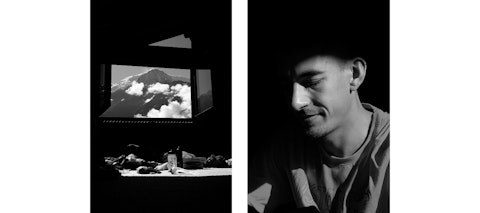
There’s something irresistible about UTMB. It has a gravity, as if all trails ultimately lead you there. An inevitability that pulls you in. It’s an event for which there isn’t a training plan. A dichotomy of being ready to start but not knowing if that’ll be enough to finish. Underpinning everything is the understanding that this involves preparing in a way that’s right for you — no template. For Melvyn, that’s part of the allure.
“I can't wait to take on an adventure that is bigger than me. UTMB is a bit like the ‘ultimate boss’ in trail running. I already played the game two years ago without being able to beat it, but this year I'm starting a new game with more experience points.”
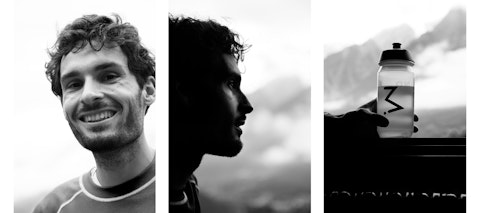
Guilt is a factor. You’re committed — mentally, physically, and financially invested. Friends and family are there for you and there’s pride at stake. The feeling of not wanting to let people down is a burden. But time is a cruel master. You can’t compress a training period — a missed session is a missed session. Melvyn is still grappling with this. “I don’t always manage. There are times when I have to schedule a late-night workout because of work, but overall I'm still learning how to manage the unexpected as best I can. Sometimes I just can’t and I miss a workout, which frustrates me. I try to adapt and, if necessary, postpone my session by a day, because in the end what’s most important for me is the overall training load at the end of the week.”
It’s easy to get too drawn in, as if the whole event depends on the completion of the next thing in the training plan. When you zoom in too close it’s hard to shake the feeling that the whole project might be derailed. Melvyn adds that,
“without a little letting go and adaptability on a daily basis, I would just crack mentally.”
Anthony is a little more black and white. “If I need to miss or postpone a session at some point because of personal commitment, then this is it. My personal life is more important than the sport. I see the big picture and I know that the most important thing in training is consistency and regularity. Missing a session because of personal life for instance happens.”
Experience matters. But not of the course profile, where the aid stations are, or the specifics of the trail conditions — it’s experience of self. “The best runner is also the one who can best cope with the unexpected along the way — improvisation is key,” states Melvyn. Yet improvisation requires an understanding of how the body will react if you need to pivot to a new strategy. To make the best decision for you, you need to know yourself best. That’s the essence of training and preparation — trust yourself.
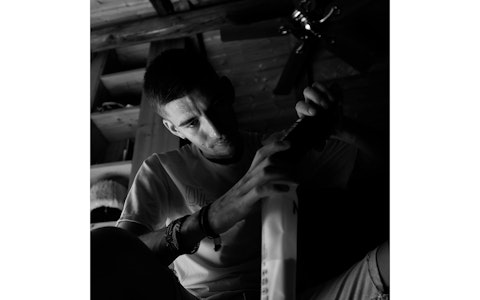
The path from race entry to race execution is never straightforward. That’s just life. It jabs at you and tests your resolve. Some days you’re invincible — surging forward on the crest of a wave. Everything easy. Other days — stuck in a rut — you’re stalled by the slightest inconvenience. This is the fickle nature of endurance sport. Equal parts doubt and euphoria. The pendulum capable of swinging from one extreme to the other in a heartbeat. The prerequisite skill for taking on a big endurance feat is adaptability. Enough flex — and elasticity — to bounce back quickly from the punches of life. Rigidity being the enemy of progress. Melvyn sees the training plan as more like a compass that guides him toward the goal. “The compass doesn't stay fixed if you deviate,” he says. “It realigns itself. It's up to me to readjust — the path to the goal is not a straight line.”
“The compass doesn't stay fixed if you deviate,” he says. “It realigns itself. It's up to me to readjust — the path to the goal is not a straight line.”
Anthony finds that consistency comes quite naturally. “I love running and I need it to decompress.” And that undoubtedly remains the cornerstone of why we run. UTMB feels like the only thing that matters right now, but there will be other goals or something else to aim for. For those in full-time jobs, for whom running is not a paid endeavour, it’s the escapism, the time inside our own minds — the antidote to the monotony of spending the day at a desk. It’s the contrast with the everyday that enables the balance to happen. Running and working are not competing for our time because in a way they complement each other.
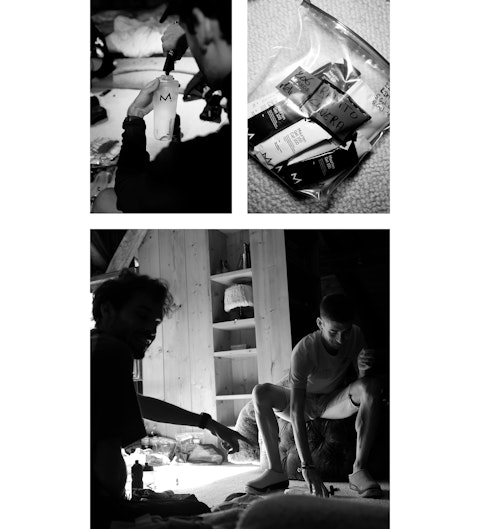

Words by Ross Lovell, Stills by Basile Deschamps